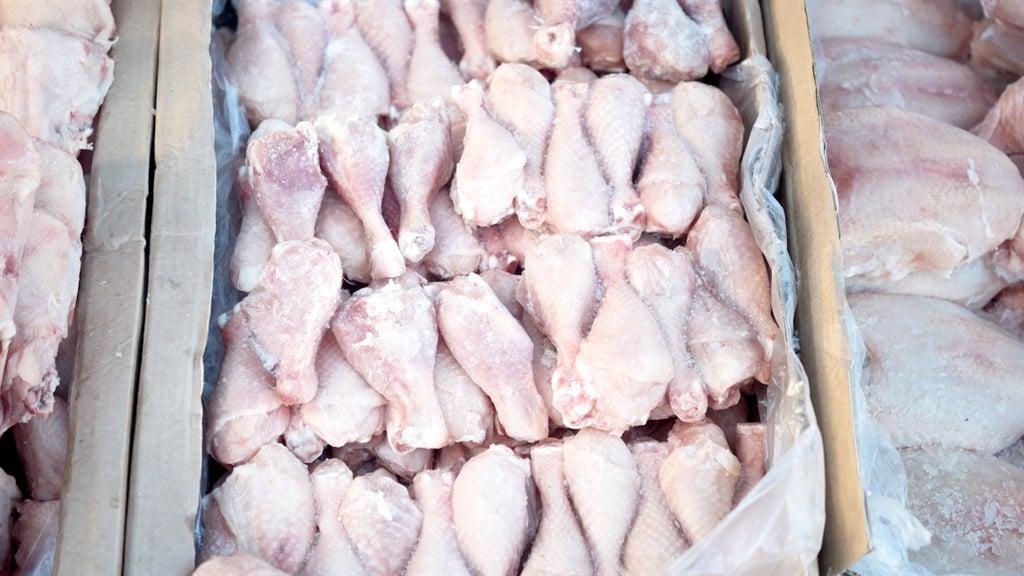Africa-Press – South-Africa. As KFC wrestles with chicken shortages that saw it temporarily close some of its outlets, top fast-food chains Famous Brands and Nando’s say they are also battling supply chain crunches courtesy of unrelenting load shedding.
Famous Brands, which owns Wimpy and Steers, confirmed on Thursday it had “experienced procurement shortages caused by sustained load shedding” but that the “disruption is being actively managed”.
“This includes short deliveries of chicken from chicken producers,” said the group, which also owns Mugg & Bean and Debonairs, among other brands. It said none of its outlets had been closed because of the issues.
Geoff Whyte, CEO of Africa, Middle East and Asia for Nando’s, said in an interview that load shedding was affecting chicken production along with deliveries to restaurants.
“From our perspective it has put us under enormous pressure, but we have managed to keep all of our restaurants (300 in South Africa) fully supplied and open.”
Power outages are particularly problematic when the stages of load shedding intensify to levels four, five and six, Whyte said.
He said from a production point of view producers’ processing plants require “massive amounts of power” which makes it impractical for them to have backup generation to keep facilities running during load shedding.
“The problem is these are huge production facilities and they require so much power that it is not really practical to put down enough generation to allow them to run when the power goes down. They have been working around load shedding. As long as load shedding is two hours during a normal working day, then they can cope. But if you are having eight hours a day of load shedding every day, then it (the production process) all starts falling over.”
On top of all of this, road congestion caused by traffic lights being out also affects logistics companies delivering to restaurants, with Whyte saying that suppliers are forced to make fewer deliveries because transporting the goods takes much longer.
“If you have very heavy load shedding that is continual, it makes it impossible to operate effectively and you have shortages, and then you have the logistics challenges on the back of that.”
This week, KFC temporarily closed 70 of its stores as its chicken suppliers struggled with constant power outages.
The fast-food group was struggling with a shortage of “chicken on the bone” supplies with outlets in North Gauteng (Pretoria) and KwaZulu-Natal mainly affected.
Astral Foods, SA’s largest chicken producer, confirmed it was “one of a number of chicken suppliers into the KFC network”, adding that load shedding had “severely impacted” its ability to supply licensed or “specification type products” to the quick service restaurant (QSR) category.
“The load shedding has resulted in the bird age and bird weights moving out, and hence less birds available in the specific weight ranges and portion sizes needed for the QSR channel.”
Astral also said the supply constraints were affecting “fast food/quick dining restaurants as a channel” and “not just KFC”.
On Thursday, KFC South Africa said that it was “working hard” to ensure no further stores are affected and that “those that are impacted are operational again as soon as possible”.
“Over 900 KFC restaurants are still serving many of our fan favourite meals and we expect full operations to return in the coming weeks.”
There have been more than 200 days of load shedding this year in SA, making 2022 the worst year on record as far as power outages are concerned.
Chicken Licken said through its attorney Ron Wheeldon that none of its outlets had been affected by any shortages.
The South African Poultry Association had not immediately responded to requests for comment.
Shortages not experienced in grocery segment
The chicken supply chain issues, however, do not appear to have extended to the grocery sector, with two of the largest retailers in that segment saying they had not experienced any shortages.
Shoprite said it was not experiencing a shortage of chicken in any of its supermarkets, adding that its suppliers had not indicated that there were insufficient stock levels.
“In-store stock levels will fluctuate from time to time depending on availability from our suppliers, but should a customer have any difficulty finding a specific product they are looking for, they are welcome to speak to the store management directly to assist with sourcing the product or suggesting an in-stock alternative,” it said.
Shoprite added that it had also made substantial investments over the years to equip all its supermarkets with generators to allow for uninterrupted operations, including keeping refrigerators and freezers running to protect perishable products during intermittent power cuts.
“It has become a standard specification for new stores.”
Pick n Pay said it was “fully stocked for customers” and was “not experiencing any shortages in our supply chain”.
“We will monitor supply carefully,” it said.
The article has been updated with comment from Astral.
For More News And Analysis About South-Africa Follow Africa-Press






